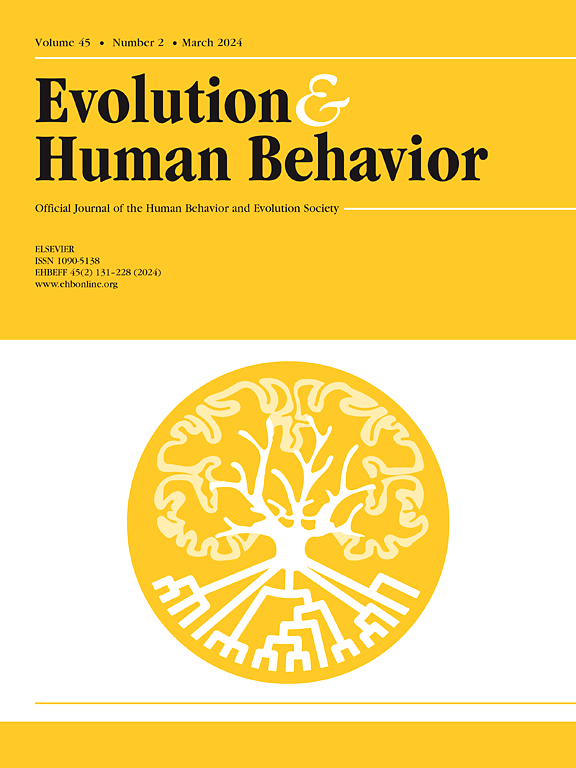文化演变与受益者问题
IF 3.2
1区 心理学
Q1 BEHAVIORAL SCIENCES
引用次数: 0
摘要
文化的生态方法通过提出文化现象最好被理解为旨在最大化其基因复制的生产者的扩展表型,从而扩展了包容性适应性传统。这种观点的一个重要含义是,文化进化可以用生态学的传统概念来建模,而不需要假设一个单独的继承系统。本文对生态方法提出了挑战。如果我们认真地从基因的角度看待进化,那么我们也有理由相信,文化现象可能是通过它们自己的遗传系统进化而来的,因为这两种观点的动机都是它们能够回答进化生物学中有益的问题。本文章由计算机程序翻译,如有差异,请以英文原文为准。
Cultural evolution and the beneficiary question
The ecological approach to culture extends the inclusive fitness tradition by proposing that cultural phenomena are best understood as extended phenotypes of producers aiming to maximize the replication of their genes. An important implication of this view is that cultural evolution can be modeled using traditional concepts from ecology, without positing a separate system of inheritance. This article presents a challenge to the ecological approach. If we take the gene's-eye view of evolution seriously, then we also have reason to believe that cultural phenomena may evolve by their own system of inheritance, since both positions are motivated by their ability to answer the beneficiary question from evolutionary biology.
求助全文
通过发布文献求助,成功后即可免费获取论文全文。
去求助
来源期刊

Evolution and Human Behavior
生物-行为科学
CiteScore
8.30
自引率
9.80%
发文量
62
审稿时长
82 days
期刊介绍:
Evolution and Human Behavior is an interdisciplinary journal, presenting research reports and theory in which evolutionary perspectives are brought to bear on the study of human behavior. It is primarily a scientific journal, but submissions from scholars in the humanities are also encouraged. Papers reporting on theoretical and empirical work on other species will be welcome if their relevance to the human animal is apparent.
 求助内容:
求助内容: 应助结果提醒方式:
应助结果提醒方式:


